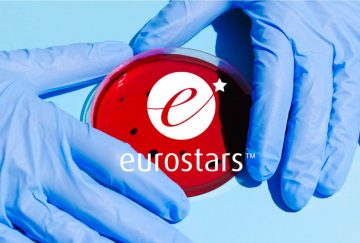Health: Destination 1 – Staying healthy in a rapidly changing society
There are six destinations under the ‘Health’ cluster in the ‘Global Challenges and European Industrial Competitiveness’ pillar of the Horizon Europe programme. On this page you can find summaries of all four calls under the ‘Health’ cluster’s Destination 1 – Staying healthy in a rapidly changing society.

‘Health’ Cluster: Destination 1
Calls under Destination 1 of the ‘Health’ cluster focus on major societal challenges, particularly diet and health, ageing and demographic change, mental health, digital empowerment in health literacy, and personalized prevention. The Research and Innovation Action under this destination will contribute to the impact area ‘Good health and high-quality accessible health care’, through providing new evidences, methodologies and tools for understanding the transition from health to disease.
Complimented by Coordination and Support Actions, Destination 1 will lead to citizens adopting healthier lifestyles and behaviours, becoming empowered to better manage their own health and well-being, and placing more trust in knowledge-based health interventions and guidance.
Destination 1 – Calls 2022:
HORIZON-HLTH-2022-STAYHLTH-01-01-two-stage: Boosting mental health in Europe in times of change (RIA)
Subsidy: €7M
Total budget: 50M
Deadline: First stage: 1 February 2022; second stage: 6 September 2022
Scope: Against the backdrop of a transforming Europe and in the midst of a global pandemic, the EU is committed to lead the transition to a healthier planet and a new digital world. The health and wellbeing of its citizens is a prerequisite to achieve this aspiration.
On the one hand, extreme weather and environmental disasters have risen dramatically over the last decade, and are linked to serious mental health problems, including anxiety, depression, post-traumatic disorder and suicide. On the other hand, digital technologies and the achievement of the Digital Single Market – one of the EU’s key priorities – are transforming our economy, our industries as well as our culture and lifestyle.
Read the call infosheet to learn more
HORIZON-HLTH-2022-STAYHLTH-01-04-two-stage: Trustworthy artificial intelligence (AI) tools to predict the risk of chronic non-communicable diseases and/or their progression (RIA)
Subsidy: €6M
Total budget: €60M
Deadline: First stage: 1 February 2022; second stage: 6 September 2022
Scope: It is widely recognised that health systems must put more emphasis on prevention and adopt a person-centred approach. Artificial intelligence (AI) along with the increased availability of health data hold great potential to pave the way for personalised prevention and enable progress towards risk prediction and early detection of chronic non-communicable diseases.
This topic will support multidisciplinary research, build on broad stakeholder engagement and support proposals developing novel robust and trustworthy AI tools to enable timely personalised prevention approaches for chronic non-communicable diseases/disorders. The topic does not exclude any diseases/disorders.
Read the call infosheet to learn more
HORIZON-HLTH-2022-STAYHLTH-01-05-two-stage: Prevention of obesity throughout the life course (RIA)
Subsidy: €10M
Total budget: €60M
Deadline: First stage: 1 February 2022; second stage: 6 September 2022
Scope: Obesity is one of the most serious public health challenges of the 21st century. Although health has improved in the EU over the last decades, the prevalence of obesity has tripled in many countries of the EU. It is known that once individuals become overweight or obese, they are at risk of developing related diseases (diabetes, cardiovascular diseases, cancer). Overweight and obesity are largely preventable. In the current pandemic, the issue of overweight/obesity has become even more prominent, highlighting the need for prevention of overweight/obesity.
Increased efforts in research and innovation are critical for developing and testing the impact of tools, initiatives, interventions, strategies, programmes, policies and their implementation to prevent overweight/obesity. The use of best practices, harmonisation guidelines and/or standard operating procedures, developed at various levels (from local to national) in the EU and beyond, will be the foundation for new research.
Read the call infosheet to learn more
Return to Cluster 1 – ‘Health’ overview
Further reading:
- Horizon Europe Cluster 1 Health reference document
- All Horizon Europe work programme reference documents
- Overview of Horizon Europe
- Learn about the Horizon Europe Missions



